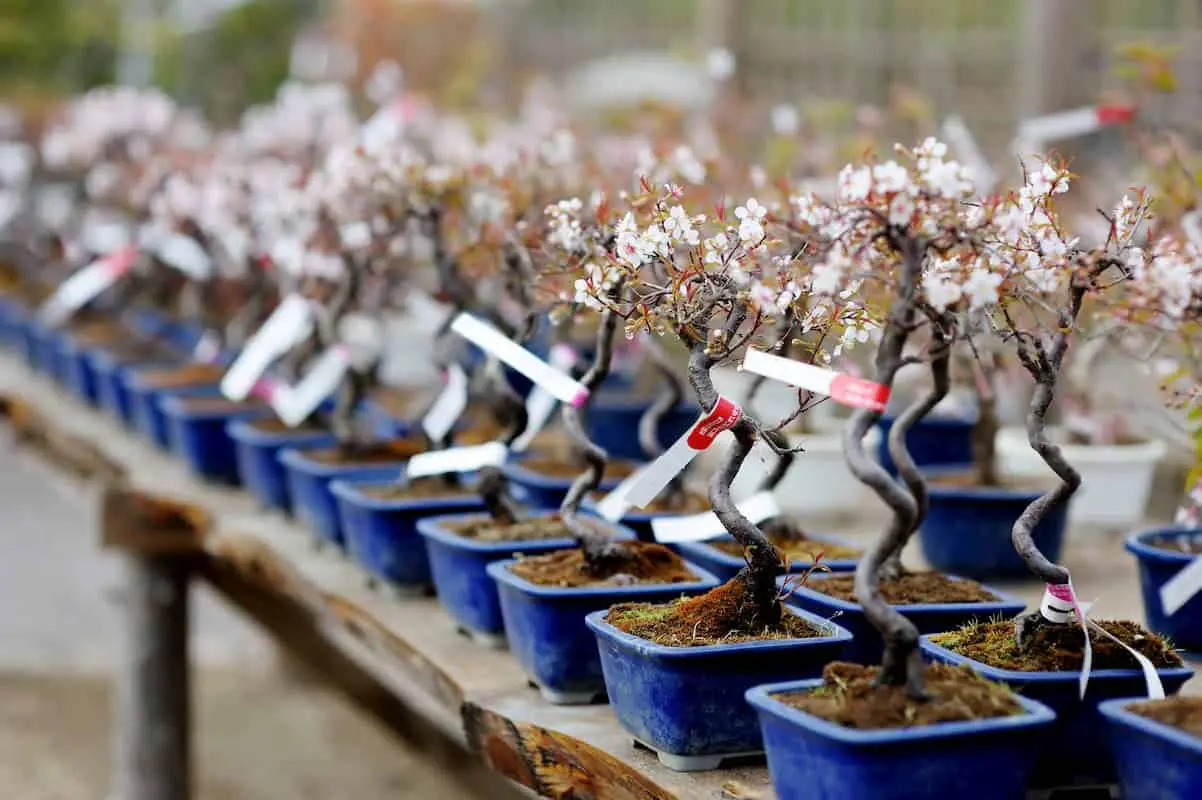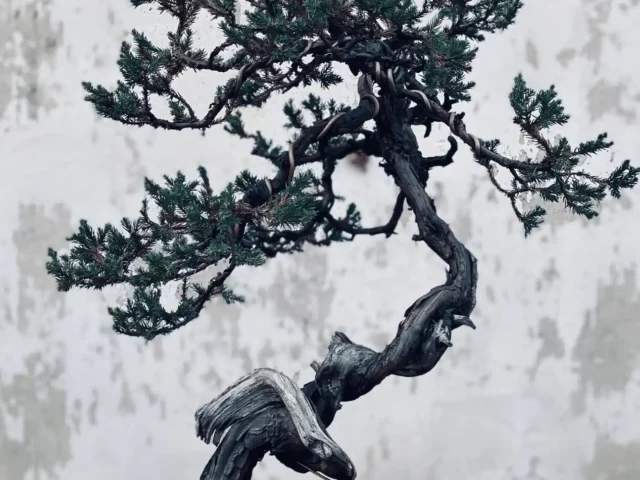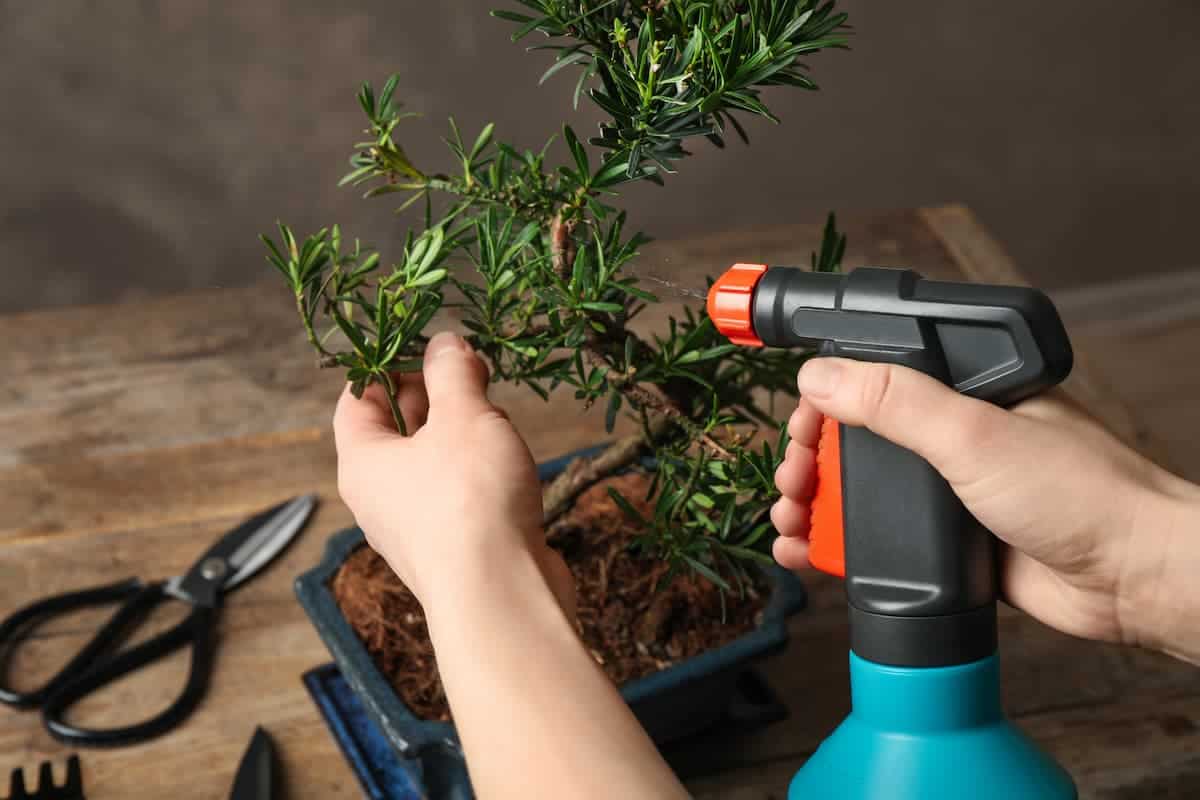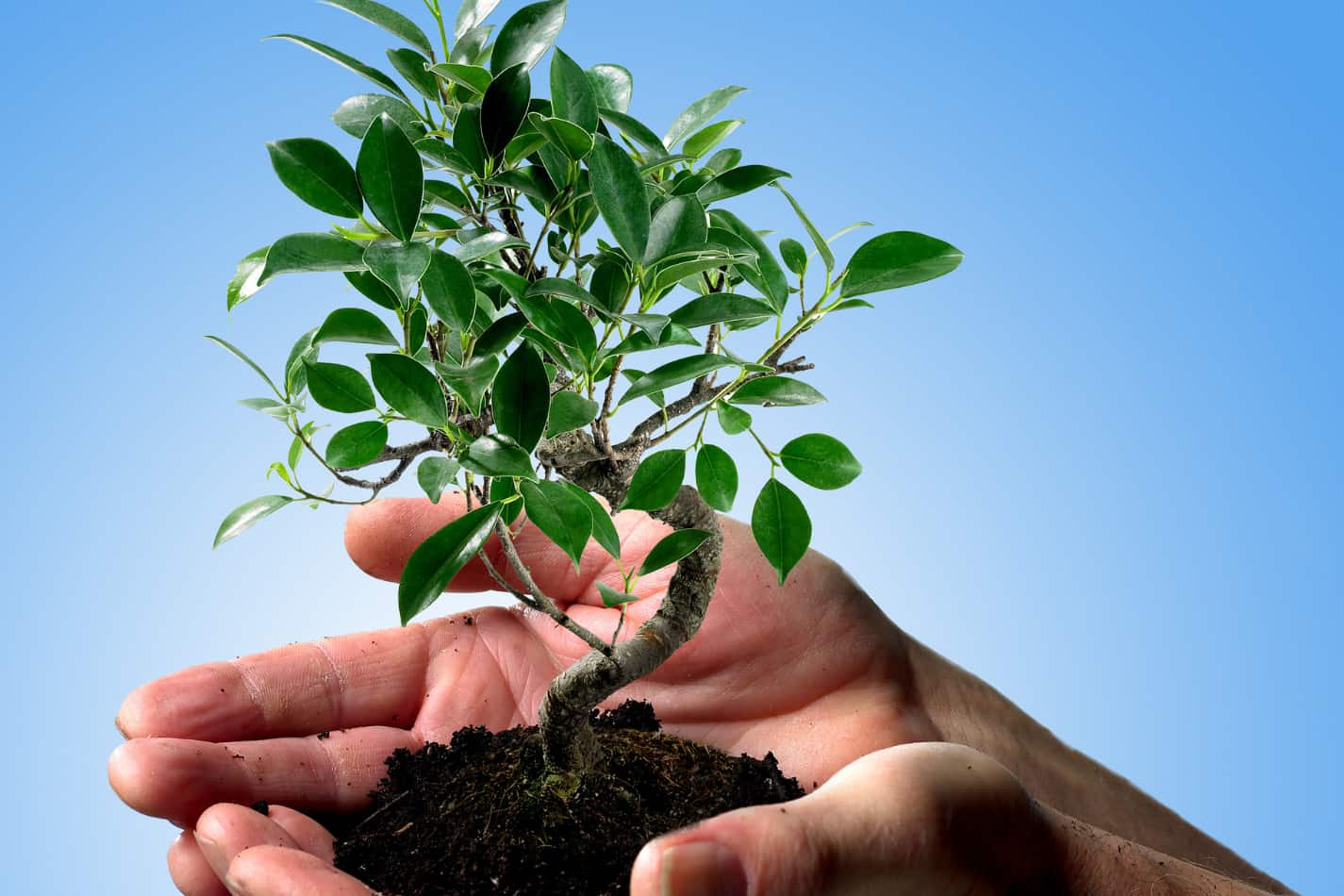If you kick off your day with a warm cup of freshly brewed coffee, it’s about time you put the discarded coffee grounds into use. And if you’re thinking about using it on your bonsai tree, you’re already on the right track. But are coffee grounds good for bonsai trees? Let’s find out!
Used coffee grounds are a great fertilizer as they contain a lot of nitrogen. If you put coffee grounds in the soil of your bonsai tree, it will grow faster. It can also help maintain the health of the soil. The microorganism culture in a bonsai tree will also benefit if coffee grounds are added to the soil.
However, these are not the only benefits of coffee grounds. If you plan to use coffee grounds in the soil of your bonsai trees, then check out our article to learn about its many benefits and how to use it correctly.
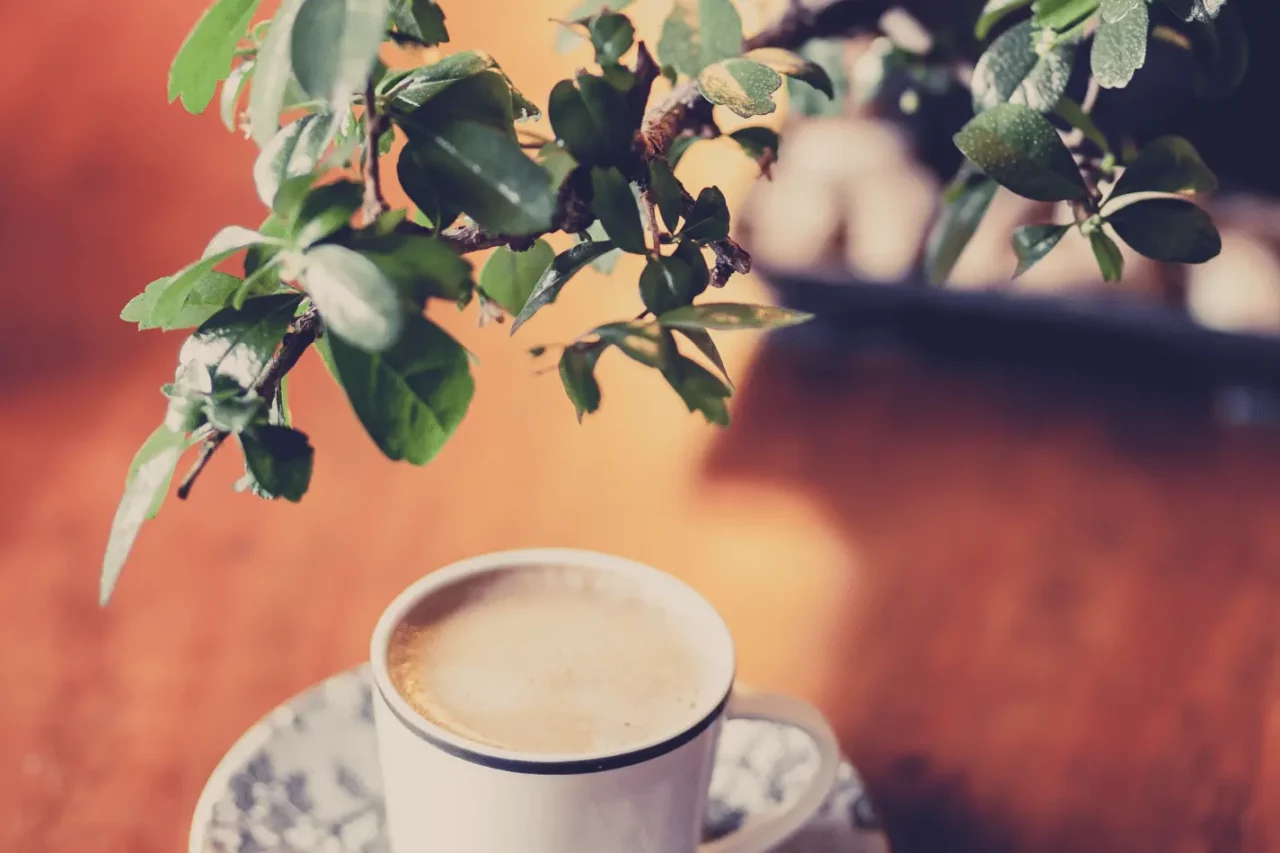
Are Coffee Grounds Good For Bonsai Trees?
Used coffee grounds are good for bonsai trees as they have a neutral pH, creating the ideal soil environment for them. They are also abundant in nitrogen, which makes them a good fertilizer. Used coffee grounds also invite microorganisms like earthworms into the soil, making the soil richer in nutrients.
Bonsai enthusiasts use coffee grounds as fertilizer all over the world. See, used coffee grounds contain loads of nitrogen, one of fertilizer’s main elements.
As the coffee grounds decompose in the soil, they release nitrogen into the soil, making them suitable to add to your bonsai soil.
Benefits Of Using Coffee Grounds:
The benefits of using used coffee grounds in bonsai trees are present in ample amounts. Check out the core benefits below to know why you should immediately add used coffee grounds to your bonsai soil.
Ground Coffee Is Rich In Nutrients
In addition to packing in loads of nitrogen, coffee grounds also contain phosphorus, potassium, magnesium, and copper, among many other elements, which are vital for the well-being of bonsai trees.
As the grounds break down in the soil, they transmit these minerals into the soil, benefitting the tree.
It Has A Neutral pH
In general, pH measures how acidic or basic the soil is. It is expressed on a scale that goes from 0 to 14. While 0 is acidic, the middle- 7 is neutral, and 14 is basic.
Most bonsai soils prefer a neutral pH. As different minerals are soluble at different pH values, the pH of the soil must be regulated.
The pH of soil also affects the activity of microorganisms present in the soil. It basically affects the overall structure of the soil. Hence, maintaining pH is key to optimum soil health.
It Improves Drainage, Aeration, and Water Retention In The Soil
Unfortunately, bonsai soil tends to have a high draining habit due to the solubility of the minerals present in it.
This means that all of the minerals in the bonsai soil dissolve in water and wash off quickly, leaving little to no minerals for the bonsai to absorb. However, using coffee grounds helps supply those lost minerals to the soil.
Overall, coffee grounds improve the soil structure. Coffee grounds fertilize the soil while adding organic materials that would otherwise be lost due to drainage.
Additionally, the granular nature of coffee grounds helps to trap all the necessary minerals and aid in aeration and water retention in the soil.
It Helps Microorganisms Grow And Attracts Earthworms
Since coffee grounds are organic, they attract earthworms into the soil as it is the perfect food for them. Coffee grounds are also known to be good pesticides that repel pests that can otherwise infect your bonsai tree.
Additionally, the usage of coffee grounds considerably benefits soil microbial culture. This is because coffee grounds are high in nitrogen, which is required to grow soil microbes such as bacteria.
This gives energy to the microorganisms and helps with their growth.
Used VS Unused Coffee Grounds
Fresh coffee grounds are not really good for most bonsai trees. This is because used coffee grounds have less caffeine than fresh ones, which can be bad for bonsai trees.
Most importantly, fresh coffee grounds are acidic, making them harmful for most bonsai trees. Whereas used coffee grounds are neutral, ensuring they don’t affect the soil’s pH.
Having said that, a few bonsai tree species prefer an acidic environment in their soil. Soils that decompose plenty of organic materials tend to have an acidic nature.
Bonsai trees like Camellias and Azaleas prefer a slightly acidic soil compared to their other bonsai cousins.
How To Use Coffee Grounds In Bonsai Trees?
You can add coffee grounds to your compost heap and mix them into the soil. This way, the coffee grounds will act as a good fertilizer. You can also sprinkle the ground coffee on top of the soil to attract earthworms and repel other pests.
If you add coffee grounds to your compost, it will give a better yield of nutrients in your soil. As coffee grounds are considered green compost, adding them to different composts will balance all the necessary nutrients needed for the soil.
You can add them with dry leaves or fresh grass clippings, or any source of carbon, like paper coffee filters.
You can start your journey to using coffee grounds by adding small amounts of them to your soil. One tablespoon should be enough. Then, you can gradually build up on the amount until you’re satisfied with the result.
Keep in mind that quantity is key. While too much coffee ground can cause root rots, too little will not show the desired results.
One benefit of using coffee grounds in your compost is that composted grounds won’t cake up the soil and will let water through, aiding in water flow, which wouldn’t have been the case for granular grounds.
Hence, to get better compost, you can grind your coffee beans on a coarse setting.
Which Bonsai Trees Benefit From Coffee Grounds The Most?
As used coffee grounds have a neutral pH environment in the soil, they can work well with many different bonsai trees. However, a few exceptions that prefer acidic soil environments can work best with fresh, unused coffee grounds.
As coffee grounds can be both acidic and neutral depending on whether they are unused or used, they can satisfy all types of bonsai trees.
As used coffee grounds have a neutral pH, one that is around 7, it works well for every other bonsai tree because most bonsai soil prefers a neutral environment.
On the other hand, unused coffee grounds will work well with species of bonsai trees that love acidic soil, such as Bougainvillea, Azalea, Spruce, Larch, and Cedar among the coniferous series, and species like Camelia, Ilex, and many juniper species.
These bonsai soils prefer a low pH and thus work well with fresh coffee grounds.
Conclusion
Now that you know are coffee grounds good for bonsai trees, don’t forget to save the coffee grounds you’d otherwise throw away. So, from now on, just collect all the leftover coffee grounds after brewing your morning coffee.
Just add them to a pile of dry leaves, sprinkle them on your bonsai, and enjoy the many benefits of it. I hope this helps, and thanks for reading through the article!


